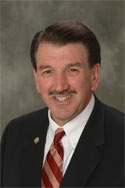In many rural areas, even those with a university, there is a pervasive sense that economic vitality is impossible, the challenges too great, rewards too limited and regional poverty too persistent. This is a costly misconception.
“Nobody made a greater mistake than he who did nothing because he could only do a little.”
— Edmund Burke —
__________________________________________________
While all universities have the potential to contribute to regional economies, rural universities have an especially challenging role. History insistently testifies: Universities focused on academic achievement will have a positive economic impact.
A 2010 study by the Economic Research Service of the U.S. Department of Agriculture, “Nonmetropolitan Outmigration Counties: Some Are Poor, Many Are Prosperous,” shows half of the nonmetropolitan counties in the nation lost population over the past few decades. In 700 of those, declines were 10% or more. Moreover, nonmetropolitan counties fall into two categories.
On the one hand poverty rates are high, high school completion rates are low, and unemployment is above national averages. On the other hand some nonmetropolitan counties post high educational attainment and lower unemployment, typically the case in rural counties with universities. Nevertheless, to rely solely on universities to address outmigration is shortsighted.
Further complicating the scenario, rural universities may contribute to outmigration by elevating aspirations of local students. The green grass of opportunity grows in distant pastures. Exodus due to the paucity of local possibilities seems inevitable.
Desperation for any job-creating enterprise may cause snap, short-term decision-making absent appreciation of long-term costs and implications. The Bakken shale formation of North Dakota created an explosion of horizontal drilling for harvesting oil and gas leading to jobs and growth. Last week in a post on the dailyyonder.com website, Fracking Jobs Come With Costs, Paper Says, Tim Marema suggests that while the immediate benefits of employment are real, there may be long-term challenges for local economies. The boom of energy related employment may wane when resources play out. Even with strict environmental safeguards to alleviate pollution associated with recklessly executed and/or leniently regulated fracking, economic impacts may remain indefinitely.
The yo-yo effect of sporadic cycles of activity and inactivity associated with some industries could be modulated by stabilizing employment and development opportunities nurtured through an engaged university. Exceptional community/institutional collaboration are essential. The Illinois Soybean Center, housed at SIU Carbondale is an example of industry/university collaboration for distinctive regional and community benefit. It builds on a tradition of faculty student research, and public/private funding.
Well led universities should dampen fluctuations of job creation and job loss in regions where economic activity is seasonal or cyclical such as agriculture and mineral extraction. Understanding the rural economic dynamic and the nature of its impact on a university’s academic mission is the key to success — made especially confounding because no two regions or universities are the same.
“All politics are local,” said Tip O’Neill. All economies are local too.
In my university community this discussion is ongoing but not new. While fracking is a relatively recent phenomenon, the coal industry in southern Illinois has a long and pervasive impact on every aspect of life. It stands the region in stark contrast to the northern extremities of the state, Chicago and the trade and commerce related collar counties. Georgia’s metropolitan Atlanta, upstate and downstate New York, coastal California and the San Joaquin Valley all represent distinctive and occasionally competing regions with sundry economic opportunities that create a “two-state” reality.
The challenges are numerous. A National Agriculture and Rural Development Policy Center research paper by Mark Partridge and Amanda Weinstein of the Ohio State University, suggests natural resource abundance may be a hindrance to economic development in rural regions. Unchecked or poorly configured economic development could be an encumbrance, but any manifestation of a natural resource: scenic beauty, game, fertile soil, oil, or natural gas is of great benefit to any region if exploited responsibly.
Michael Porter of the Harvard Business School, in “Colleges and Universities in Regional Economic Development: A Strategic Perspective,” says universities can have positive long-term economic impacts. Porter’s posit, “A region’s competitiveness is determined by how productively it uses its human, capital, and natural resources; that productivity sets the regions standard of living to its effect on wages, returns on capital and returns on natural resources.”
Rural universities should promote economic development in response to regional distinctiveness, university strength, and shared aspirations.


